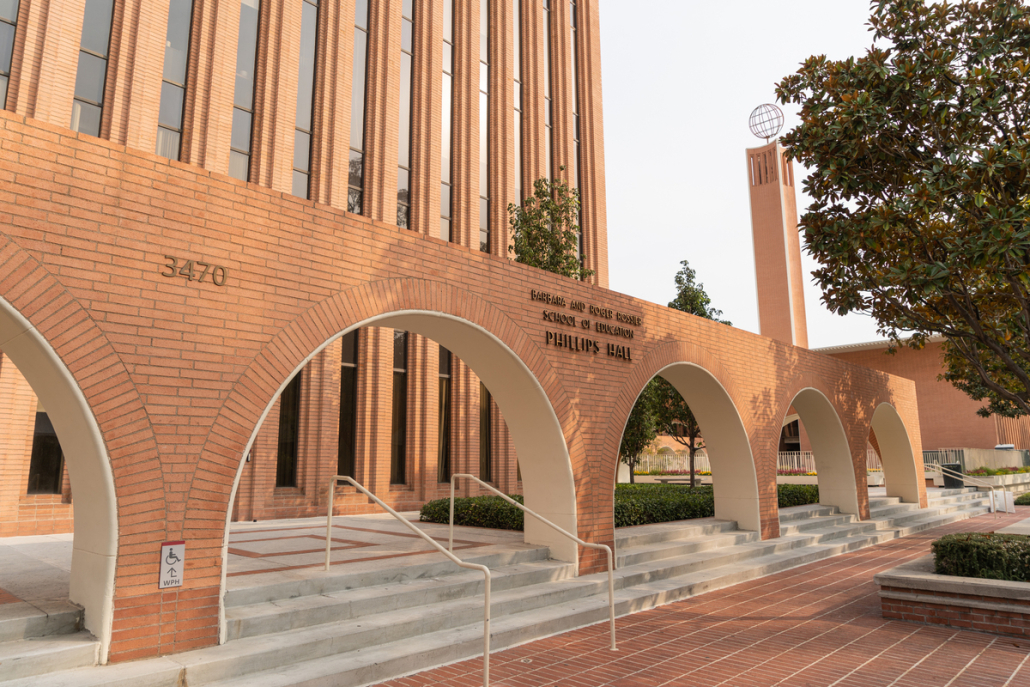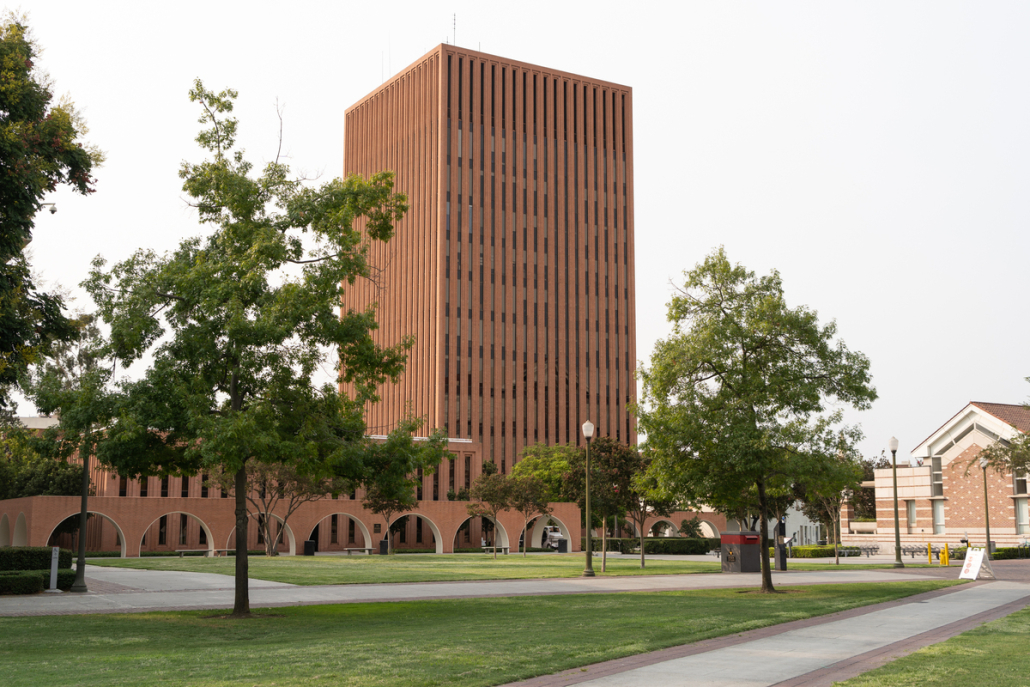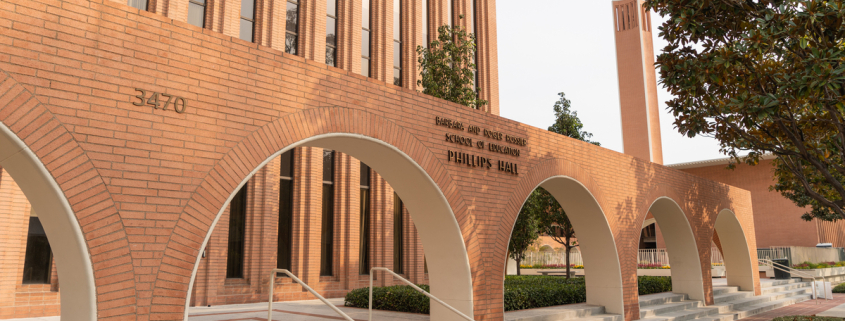School gun violence ranked top concern in Rossier poll

In the annual USC Rossier and Policy Analysis for California Education poll, around 2,000 California voters, parents and students ranked gun violence in public schools as their top concern for the fourth consecutive year. In the poll, voters most strongly supported policies that would increase reporting on potential threats and “harden” schools, such as requiring school administrators to report shooting threats, increasing the frequency of active shooter drills and installing metal detectors in schools.
The poll, titled “Assessing Voters’ and Parents’ Perspectives on Current Threats to Public Education,” surveyed voters on the urgency of eight issues threatening public education: gun violence, politicization of public education, controversy over curriculum, student learning and health, disenrollment, staffing shortages, college affordability and a lack of stable long-term funds. Fielded in July and published in August, the poll also examined the systemic equity gaps rooted in opportunity and access to education.
In previous years, when asked to measure issues on a scale from 1 (not important) to 10 (very important), voters rated reducing gun violence along an average of 8.47 to 8.63. This year, the average rating rose to 9.06.
Julie Marsh, co-author of the poll and professor of education at the Rossier School of Education, said that while the emphasis on reducing gun violence in schools is not new, the overwhelming support in this year’s poll is surprising. According to Marsh, it may be a result of recent shootings like the May shooting in Uvalde, Texas, or an increase in social media use.
“Certainly, social media has made it much easier to build public support for ideas to organize folks to share information,” Marsh said. “And so certainly, it’s an important political tool when it comes to advocating for policies and elevating the importance of policy-relevant topics.”
Some students, like Raphael Deutsch, a doctoral candidate in the philosophy program studying classics, believe the support is justified — if not overdue.
“As a Canadian, it used to feel shocking, but at this point, the kind of gun violence in American schools just seems par for the course in this country,” he said.
American political culture, Deutsch believes, is fractured. “It kind of seems like collective madness to just treat it as a partisan issue when it shouldn’t be, and it’s framed as a partisan issue by the media,” he said.

Jeimee Estrada-Miller, co-author of the poll and doctoral candidate at the Price School of Public Policy, spoke to the impacts of school shootings on youth.
“In elementary school, I actually was in my classroom when there was a school shooting on campus,” she said. “A teacher was shot but fortunately didn’t pass away.”
Born and raised in South Central Los Angeles, Estrada-Miller attended public schools in the Los Angeles Unified School District for her K-12 education. The shooting at Figueroa Street Elementary School, she said, was life-defining.
“The likelihood of being in a school shooting is low, but the reality is that school shootings have become such a strong presence in our life, that even the fear of it happening affects students,” she said.
While voters strongly supported hardening schools, Estrada-Miller said she believes lawmakers and constituents can do more to mitigate gun violence from a policy perspective.
“I would say there’s an entire disconnect between ‘What are some of the possible solutions for this’ versus what we can actually enact and what schools can do, other than have more shooting drills or completely put fences around them.”
The first step, she said, is for those who are eligible to vote to do so.
“Why we actually have a strong gun culture in America is because people who are supportive of the right to be armed are showing up to protect that right and loosen protection against guns,” Estrada-Miller said. “And they’re showing up publicly.”
If people don’t exercise their right to political expression continuously, she said, public policy cannot accurately reflect public opinion.
“It’s a classic policy process where there’s some sort of crisis that elevates the tension,” Marsh said. “You have to somehow find a way to sustain that attention, and the sense of urgency because that sense of urgency goes away.”
Marsh credits President Joe Biden’s recent loan forgiveness policy as an example of the successful implementation of a policy which had sustained support.
“It took partnership, and it took a lot of energy, time and investment on the part of a large number of individuals and organizations around the country to make that happen,” Marsh said.
Upon observing the passion spurring USC students and the younger generations, Marsh said she is optimistic for the future of gun violence policy.
“The students who survived these horrible shootings, and the activism that we’ve needed and the success they’ve had in getting gun control laws, to me, suggests a lot of hope for the next generation,” she said.
Kimberly Carbajal, a USC alumna who graduated in 2022 with a degree in Cultural Anthropology, echoed Marsh’s sentiments and emphasized raising awareness through social media.
“I think society needs to keep talking about this and keep everyone informed,” she said. “Right now, social media is a big thing. We need to continue posting and reminding people that these events happened.”
What makes Gen Z different, Carbajal said, is their inclination to make their voices heard.
“We don’t give up as easily. We speak up and we continue to fight,” Carbajal said.

